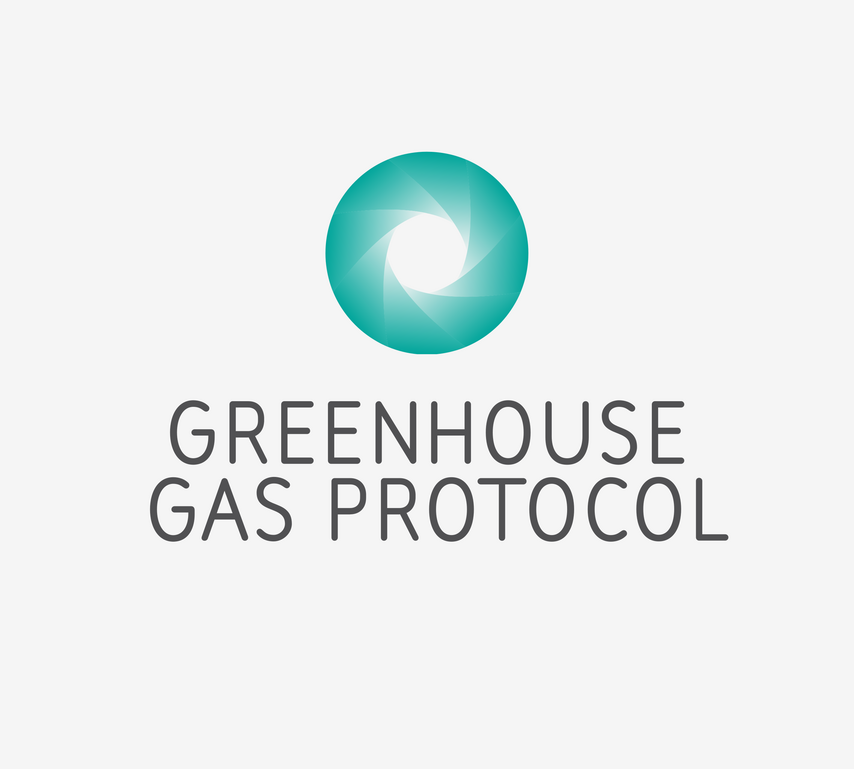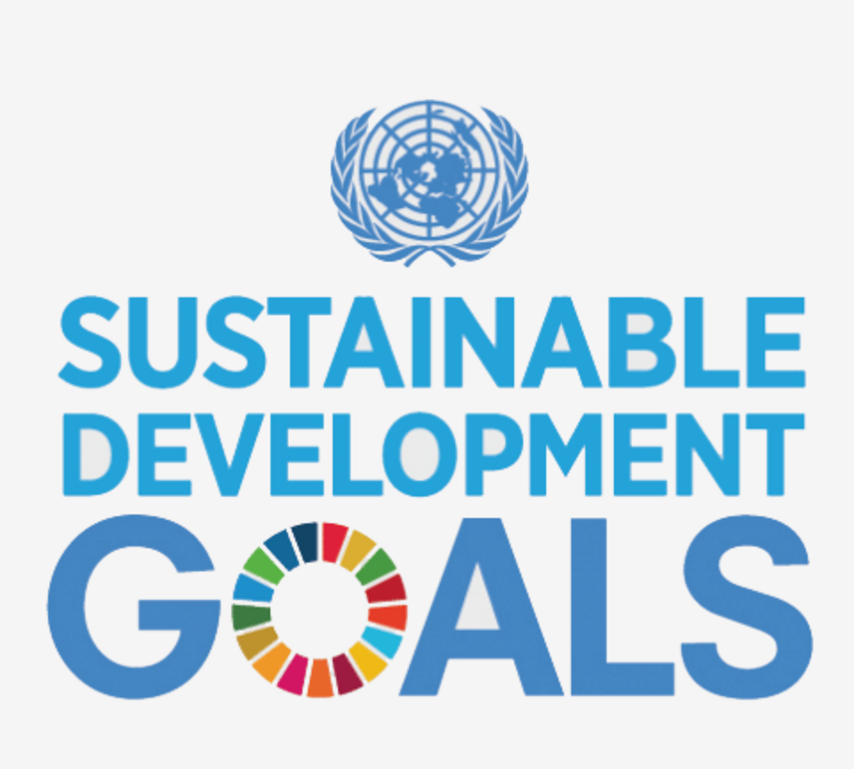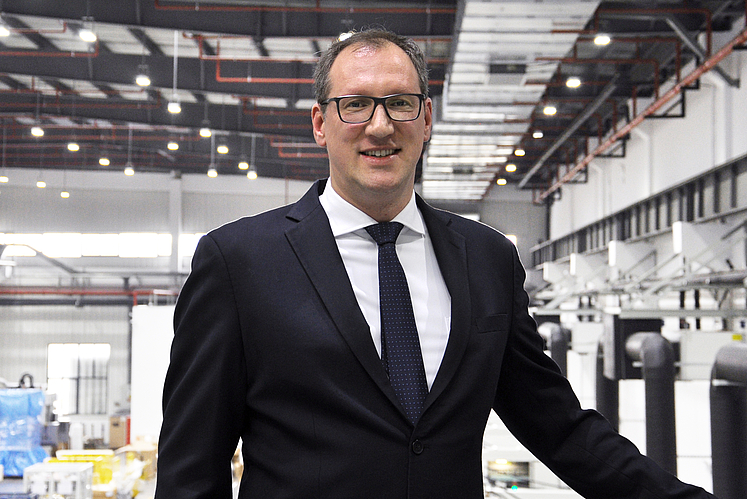EMAG on the way to climate neutrality
The global challenges of climate change make climate neutrality an important goal for the EMAG Group. Due to legal requirements for the reduction of greenhouse gases and its own ambitions, EMAG is taking important steps in this direction.
The EMAG Group's goal: net zero emissions
The EMAG Group's goal is to avoid emissions within Scopes 1-3, i.e. it strives for net-zero emissions in the company and in all processes along the value chain.
Climate protection strategy and approach
EMAG's climate protection strategy consists of five main fields:
- 1. measurement of the carbon footprint
- 2. setting reduction targets
- 3. implementation of the reductions
- 4. support for climate protection projects
- 5. transparent communication
Measuring the carbon footprint, i.e. the CO2 balance, is the first and essential step on the way to climate neutrality. It serves as a starting point and benchmark for identifying reduction potential and measuring progress over time.
EMAG implements this in three steps:
- In a first step, EMAG determined the CO2 emissions of the production companies at the Zerbst and Jintan sites and the headquarters in Salach.
- The second step is to determine the CO2 emissions of the business units in Germany and Italy, including EMAG in Heubach, EMAG Weiss in Neckartailfingen, EMAG Koepfer in Villingen-Schwenningen and EMAG SU in Bologna.
- In the third step, the CO2 emissions of all market companies worldwide are determined.
These detailed investigations enable EMAG to obtain a clear picture of the sources and extent of its greenhouse gas emissions.
In this context, the term "CO2 " stands for carbon dioxide and other greenhouse gases such as nitrous oxide and methane. The latter are converted into so-called CO2 equivalents (CO2 e).
Once the carbon footprint has been recorded, EMAG has set reduction targets that both comply with legal requirements and take into account the company's own ambitions. These targets are specific, measurable, achievable, relevant and time-bound and take into account all scopes (direct and indirect GHG emissions).
Once the reduction targets have been set, the implementation phase follows. This involves concrete measures and projects to reduce emissions. These can involve a wide range of measures, from the optimization of production processes to the introduction of energy efficiency measures and the use of renewable energies. EMAG pursues a holistic approach that aims to reduce emissions in all areas of the value chain.
In addition to reducing its own emissions, EMAG is also involved in climate protection projects. These can be local, national or global projects that contribute in different ways to combating climate change. Through this support, EMAG can have a positive impact on the environment in addition to its own emissions reduction.
Transparency is a key principle in EMAG's climate protection strategy. The company keeps stakeholders regularly informed about progress, challenges and successes on the way to climate neutrality. This open communication promotes awareness and understanding of climate protection measures among employees, customers, partners and the public.
Legal requirements
Various legal requirements form the framework for EMAG's climate protection strategy:
- Global: The 2015 Paris Climate Agreement aims to limit global warming to well below 2°C this century, preferably 1.5°C.
- EU: The European Commission's European Green Deal aims to reduce greenhouse gas emissions by at least 55% from 1990 levels by 2030 and achieve climate neutrality by 2050.
- Federal government: The Climate Protection Plan 2050, as of May 2021, envisages Germany becoming completely climate-neutral by 2045. Interim targets are to reduce greenhouse gas emissions by 55% by 2030 and by 85% by 2040, both compared with 1990 levels.
- State of Baden-Württemberg: The amended Climate Protection Act of October 2021 aims to achieve climate neutrality by 2040. The reduction target for 2030 is -65% compared to 1990.

The Greenhouse Gas Protocol (GHGP) at EMAG
EMAG operates on the basis of the Greenhouse Gas Protocol (GHGP), an international standard for the accounting of greenhouse gas emissions. This includes the consideration and calculation of necessary individual items for the overall balance sheet
Background information on the Greenhouse Gas Protocol can be found at the following LINK.

Perspective and necessity
For EMAG, striving for sustainability and climate neutrality is a necessity for the company's future viability.
Sustainability or climate neutrality is not only an investment in the environment, but also has a long-term impact on business success. By knowing its own emissions and identifying the polluters in the value chain, EMAG can reduce emissions in a targeted manner and optimize its efforts towards climate neutrality.
The path to climate neutrality is a continuous process and requires consistent action.
EMAG is determined to continue on this path and takes its responsibility for climate protection seriously. In doing so, EMAG not only follows the legal requirements, but also sets itself ambitious goals in order to make a significant contribution to stopping climate change.

Agenda 2030 - Sustainable Development Goals
The EMAG Group is committed to the UN Agenda 2030 and sees the 17 Sustainability Goals as a guideline for its business activities. As a technology leader in machine tool manufacturing, EMAG focuses on sustainable innovations in order to combine ecological and social responsibility with economic efficiency. In doing so, the company is guided by the SDGs (Sustainable Development Goals) to create measurable added value for society. More information on the UN Agenda 2030 and the EMAG Group's commitment can be found here: UN Agenda 2030.

In the EMAG Group, we have recognized that our responsibility as a global company goes far beyond providing high-quality machinery and services. As part of our social role, we are committed to the ESG (Environmental, Social and Governance) principles to ensure that our company is sustainable, socially responsible and well managed.
The ESG principles are the cornerstones of our business practices and form the basis for all our decisions and strategies. They commit us not only to addressing environmental concerns, but also to acting in a socially just manner and to strong, responsible corporate governance.
Sustainability and climate protection are at the heart of our ESG strategy. For us, they are not abstract concepts but fundamental guidelines that govern our actions. They influence the way we produce our machines, the way we deal with our partners and customers, and the way we contribute to society.
At EMAG, we are convinced that sustainable action not only protects our environment, but also strengthens our company. Sustainable processes are more efficient, reduce our dependence on finite resources and improve our risk management.
We are aware that CO2 neutrality will become a decisive economic factor in the future - similar to a currency supplement. Against this background, we attach great importance to reducing our CO2 emissions and switching to CO2-neutral processes. This enables us to develop better and more sustainable solutions. Our machines are therefore not only powerful and reliable, but also help to improve our customers' carbon footprint. By using our machines, our customers can not only increase their productivity, but also make an important contribution to achieving their own climate targets.
We are proud of what we have already achieved at EMAG in terms of ESG. But we also know that there is always room for improvement. That's why we will continue to work on intensifying our sustainability and climate protection measures in the future and finding new ways to make a positive contribution.
Markus Clement, CEO EMAG Group





